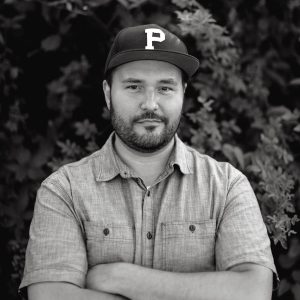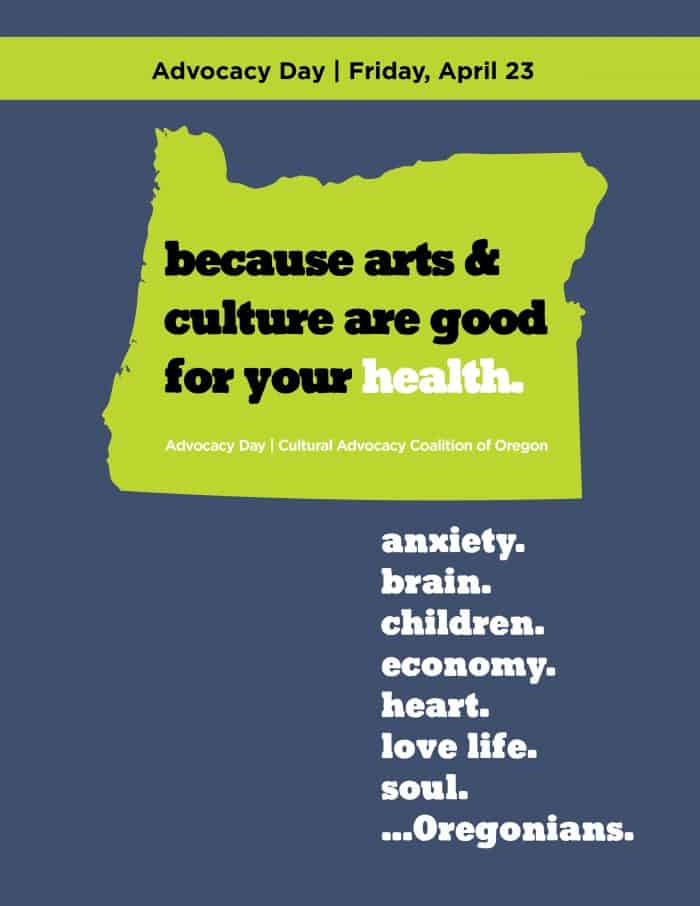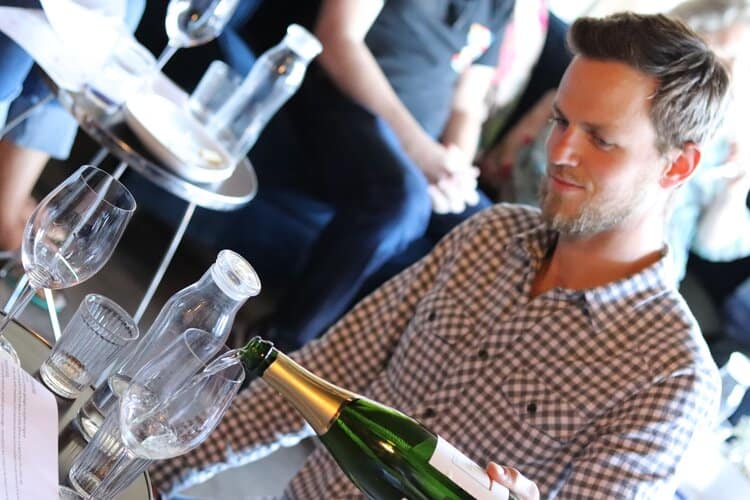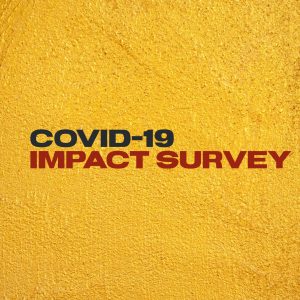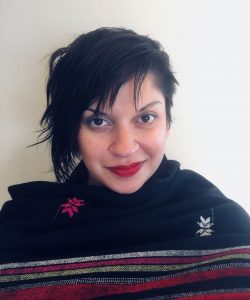Creative Economy Revitalization Act
- Filmmaker Ashley Mellinger
- Hiphop artist and producer Luvjonez
- Writer, poet and multi-media artist Terrance Burton
Art has the power to remind us of all we have in common. It’s what turns a group of individuals into a community. As our nation recovers from the pandemic, the Creative Economy Revitalization Act (CERA) offers an opportunity to put Americans to work creating art that brings our communities together.
Our creative sector is a critical and robust part of our economy. As Oregon and the U.S. begin to recover from the pandemic, we have a responsibility to lift up those who were hit the hardest. This includes our creative workers and the communities they serve. Through the Creative Economy Revitalization Act (CERA) we have the opportunity to put Oregonians to work creating art that unites our communities. In a time when our nation is divided, the diversity of our cultures, as well as our differences and overlapping shared experiences, binds us together.

| The Creative Sector Drives Travel, Tourism, and Hospitality | |
| $.83 of every dollar |
Invested in an artist is reinvested in local economies in the form of supplies, rentals, supplemental hiring, and other expenses that would not occur without that initial investment |
| $31.47 | Average amount each arts attendee spends beyond the ticket cost on meals, retail, parking, lodging, local transportation, childcare, and souvenirs. That’s over $100 billion each year to support local merchants, energize downtowns, and pay salaries and wages in non-arts sectors directly due to cultural events. |
The creative economy drives our community’s economy! If our local creative economies collapse or are unable to effectively restart, communities across the country could face economic catastrophe, with an even more difficult time recovering and restarting. The 675,000 small businesses within the creative economy anchor highly interdependent local commercial ecosystems that create and sustain retail, restaurants, hospitality, tourism, and transportation. Of those, more than 9-in-10 are solo entrepreneurs. Previously, those businesses employ as many as 5 million people – over a third are independent or gig workers (more than 3.5 times the national average).
Who are Creative Workers?
You probably know a creative worker, now! There are 5.1 million creative workers in the U.S., as identified by the Bureau of Economic Analysis. A creative worker is anyone who earns income from creative, cultural, or artistic-based pursuits, whether they earn that income independently (as an independent contractor, solo entrepreneur, or gig worker, for example) or via an employer. Creative workers use the unique human quality of individual expression to produce ideas, content, goods, and services.
As outlined in CERA, job titles that fall into the “creative worker” category include: art director, artist, animator, sculptor, writer, author, poet, photographer, musician, singer, producer, director, actor, announcer, storyteller, comedian, dancer, architect, designer (of any type), programmer, choreographer, technician, backstage or behind-the-scenes staff, curator, or other support staff who make creative work possible.
Creative workers pictured above selected from our “Capturing the Moment” call for artworks of all media created during 2020 pandemic.

| Creative Workers and Businesses Stand Ready to Aid Recovery | ||
| 76% | Of artists have used their art to raise morale and create community cohesion during the pandemic. | |
| 83% | Of creative workers are ready today to put their creative practice to use as part of the national recovery. | |
| 89% | Of arts nonprofits boosted morale through their art during the pandemic. | |
Creative Workers to Help Community Recover
CERA is a $300 million program that will mitigate creative worker displacement, stimulate local creative workforce growth, strengthen connections for local creative small businesses and networks, create a pipeline for new creative jobs, enrich communities, increase access to culture, and invest in creative workers and local economies that have been harmed by COVID-19.
The presence of arts and culture sparks additional spending on local businesses, restaurants, and hotels. It can increase property values, improve education outcomes for students, boost community pride and social cohesion while inspiring political and social activation. In addition to driving 4.3% of the country’s gross domestic product, arts and culture have significant local economic, social, and individual impact.
At the height of the pandemic, two-thirds of all creative workers (2.7 million people) were completely unemployed. Today, creative workers are 3-4 times more likely to be unemployed compared to the national rate. Nationally, creative economy jobs dropped by 53% between the end of 2019 and the middle of 2020, and have only recovered about half of that to date. The emergence of new variants of COVID-19 continues to threaten the fragile, partial re-opening of the creative sector that has begun. CERA seeks to employ artists/creatives and strengthen local economies by incentivizing investment in civic infrastructure fueled by creative workers and a recovering creative workforce.
CERA calls for the authorization of $300 million to the new grant program to be housed and administered at the Department of Labor, with advice and collaboration from the National Endowment for the Arts. The grants will go to local, state, and tribal agencies, workforce investment boards, and public or private nonprofit entities that can hire local creative workers and produce creative projects that meet local needs and priorities. These projects could include public artworks, festivals, performances, written works, anthologies and narrative collections from first responders and historically marginalized communities, and arts education work.*
*Adapted from creativeworkers.net
Click here to send an Action Alert to your representatives telling them to co-sponsor and vote for the Creative Economy Revitalization Act.
Read our previous blogpost about CERA.
#regional411
#artsadvocacy
#ArtsHero
#WPAForTheArts
#PutCreativeWorkersToWork
#CreativeWorkers
#CreativeEconomyRevitalizationAct
#AFTA

